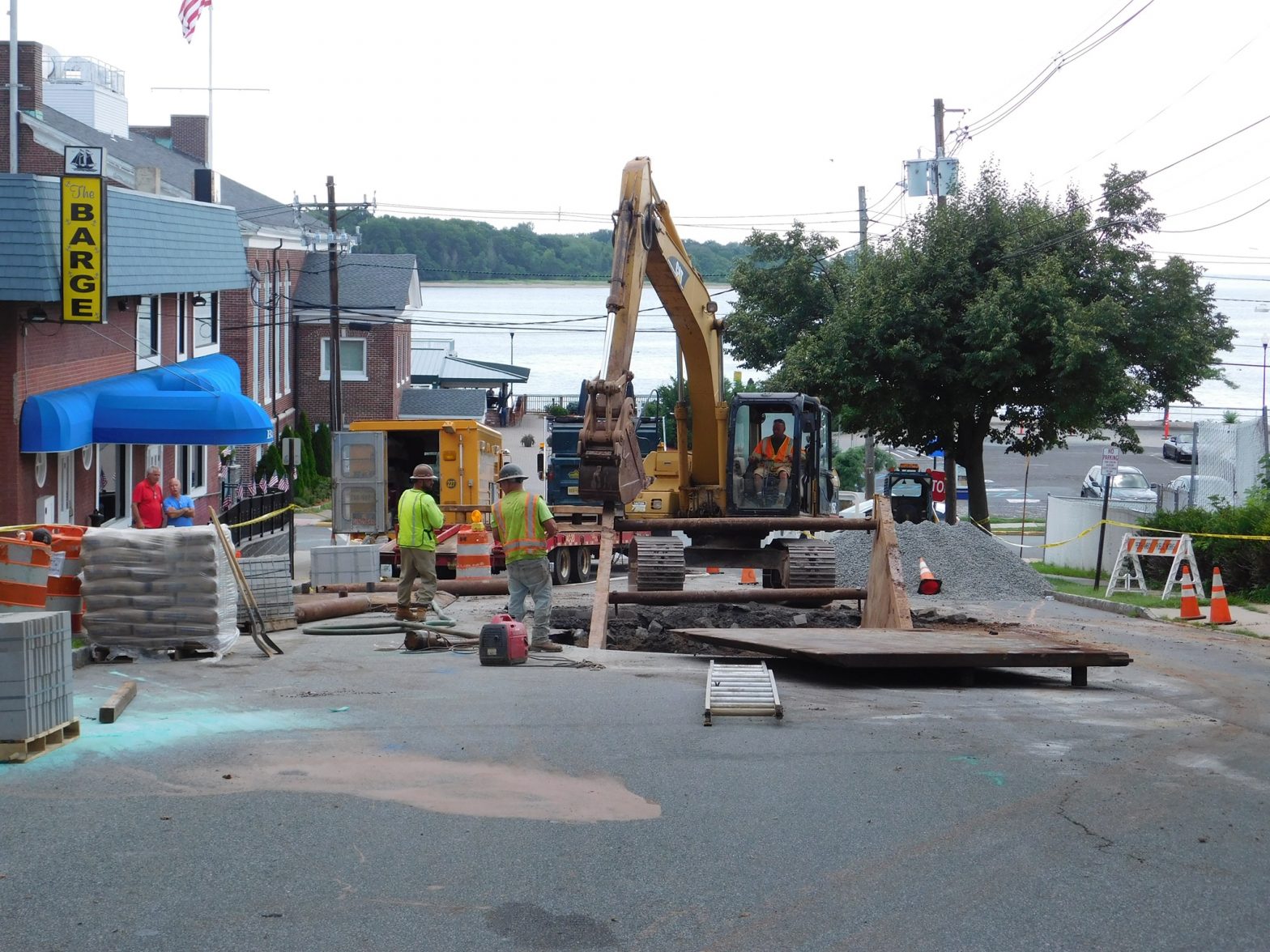July 2 was my one-year anniversary as director of the City of Trenton’s Department of Water and Sewer, which operates the 200-year-old Trenton Water Works (TWW).
Here, I would like to detail what TWW has done to return to high water quality and how we plan to maintain this excellence, including a summary of future capital projects.
TWW began its revival in 2018, during which we began to think more strategically about our filtration and water-distribution systems, our workforce, current and future capital projects, and our communication with internal and external stakeholders. Fundamental to the latter are our customers, TWW’s most essential asset.
Together with my management team, and the deep support of Trenton Mayor W. Reed Gusciora, we are executing a comprehensive plan to reorganize TWW and position it for stronger water quality and operational success.

We have made substantial progress.
In December 2018, TWW professionals restored high water quality by aggressively implementing our Disinfection Byproducts Reduction Plan. The goal: eliminate DBPs from our finished drinking water. Federal and state water-quality regulations had required TWW to mail several violation notices to our 63,000 customers between 2017 and 2018 as a result of high DBP levels. The 2018 Reduction Plan was a success.
At TWW’s water-filtration plant, we fixed key water-treatment systems, and completed an upgrade to an advanced control system called SCADA, which stands for Supervisory Control And Data Acquisition. SCADA allows plant personnel to control and monitor plant operations, filtration-process performance, pump stations, several multi-million-gallon storage tanks, the 100-million-gallon Pennington Avenue Reservoir and other parts of TWW’s 683-mile water-distribution system.
Advancing Capital Projects
We measure our capital projects in the millions. In fact, TWW will take on 36 projects over the next five years, making more than $80 million in improvements to the TWW system. This will ensure high water quality for years to come.
Between this fall and the spring of 2020, TWW will launch its $15 million Lead Service Line Replacement Program. This initiative replaces risky lead and galvanized steel water-service lines at residential properties in our service area for around $1,000, a substantially reduced cost to the homeowner. Banned in 1986, these lines can be a source of lead contamination in drinking water. We envision spending $50 million in the next 10 years to replace water-service lines on private properties, as well as those that are part of our water-distribution system (from our water main to the curb). This fall, TWW will introduce corrosion-control techniques to prevent lead particles from entering the water flowing through service lines connected to our system.
To improve the flow of water throughout our water-distribution system, TWW will spend $40 million to clean and line water mains and upgrade four-inch water mains to six-inch mains, as needed. The cleaning and lining process removes iron oxide tuberculation — small areas of corrosion — that accumulates in water mains over time, and helps to substantially increase the pressure at fire hydrants.
In the near-term, we plan to make $2.7 million in improvements to the raw-water intake system at our water-filtration plant, which draws from the Delaware River, to make it less susceptible to vegetative and frazil ice clogging and more resilient to drought conditions. System designs are complete.
We have launched a $2.2 million capital project to replace all 24 of our water-filtration plant’s filter media. These filters, viable for 20 years, are an important part of the filtration process, which enables the plant to produce 27 million gallons of drinking water each day.
Recently, we have proposed to the New Jersey Department of Environmental Protection the creation of a decentralized finished-water-storage-tank network. This project would be an alternative to installing a $30 million, limited-life-span floating cover on TWW’s 100 million gallon Pennington Avenue Reservoir. The network, enabling TWW to phase out the reservoir completely, would meet our finished-water-storage demands while reducing the age of water in our water-distribution system. It would also improve water-system resiliency, performance, operations, safety and security. The current reservoir is essentially a 120-year-old dam that is prone to leaks and has the potential for failure.
Improving Communications![]()
TWW has vastly improved its communications and outreach. Since early this year, we have taken out print ads in service-area publications that convey important messages regarding our operations, we have launched a robust social media presence using Facebook, and we have rolled out TWW-Connects, a Reverse 911 System used to issue emergency and routine alerts.
To date, we have held more than 10 public education forums, during which residents, customers and public officials have asked questions about their drinking water and water-utility infrastructure and interacted directly with TWW representatives. This personal public outreach has been an effective way to discuss important topics, including the science of water treatment, lead in drinking water and localized sources of lead, TWW’s corrosion-control strategy, capital projects, and our work to fill vacant employment positions. To that end, TWW has hired 34 people in the last 12 months, reducing our vacancy rate to 14 percent from 40 percent.
I believe that providing customers and residents with a view of our operations through ongoing communication—including our day-to-day production activities and detailed information about the quality of the water—improves transparency and helps restore customer confidence in TWW’s mission to produce drinking water that meets or exceeds federal and state Safe Drinking Water Act standards.
Better Customer Service
We are enhancing our customer service. We have upgraded our customer-service computer and telephone systems at our Cortland Street operations center and added two additional customer-service representatives. We are working to hire four more, including two bilingual workers. Our goal is to elevate personal service, reduce on-hold times, and improve the overall service experience.
In the second half of this year, we will launch InvoiceCloud, an extension of our service that will allow customers to manage their accounts online, provide additional ways to pay bills, check previous bills, set payment reminders and alerts, and more. And, we are offering home delivery of lead testing kits by calling (609) 989-3033.
We are reorganizing Trenton Water Works for today and tomorrow. We are building a trained workforce and investing in a water-filtration, storage, and distribution infrastructure to achieve continued water quality and operational success. We deeply value our customers and the communities we serve.
As we work to achieve excellence in water quality and operations and to reclaim our status as one of the leading public water systems in the United States, please know that we are at your service.
Dr. Shing-Fu Hsueh, P.E., P.P., is director of the City of Trenton’s Department of Water and Sewer, which operates the 200-year-old Trenton Water Works.
